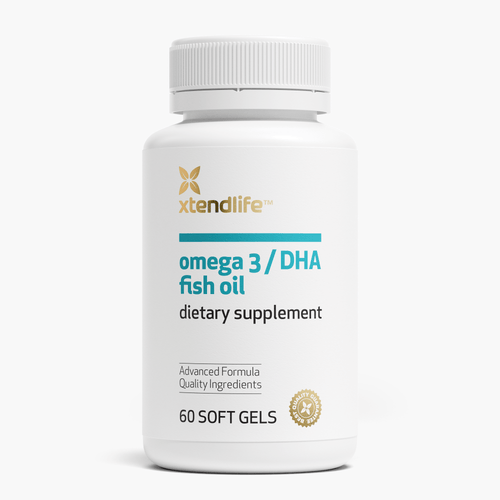Skincare isn't just about what you put on your skin—it's also about what you put in your body. Welcome to the world of Cell Science, a revolutionary approach to achieving radiant, youthful skin by targeting the very cells responsible for your skin's health and appearance.
While traditional skincare focuses on topical treatments, Cell Science takes a holistic approach by supporting skin cells at every layer to function like young, vibrant cells. This doesn't mean topical products are obsolete—rather, it emphasizes the importance of nourishing your skin from the inside out.
So, what nutrients do our skin cells truly need?
Collagen: The Building Block of Youthful Skin
Collagen is an essential protein for maintaining firm, plump and youthful skin. It's key for new skin cell production and structure, providing strength and firmness. However, our natural production declines with age, the older we are the faster existing collagen degrades. Consider supplements like type 1 collagen to boost your skin's structural support.
Food sources: Bone broth, fish, chicken, and egg whites are rich in collagen-boosting amino acids.
Start beauty from within
Boost your collagen and elastin intake with Collactive™ Marine Collagen to hydrate, nourish, and promote radiant skin.
Shop now
Vitamin C: More Than Just an Antioxidant
Vitamin C is a powerhouse for your skin, not just for its antioxidant properties. Vitamin C is It is critical to skin cell production, as well as cell function and appearance. The body needs vitamin C to produce collagen, and also for the synthesis of the lipid barriers within skin cells’ walls. In addition, low dietary intake of vitamin C can result in skin bruising easily, as well as slow wound healing. Ensuring adequate vitamin C intake can help maintain your skin's overall health and appearance.
Food sources: Citrus fruits, strawberries, bell peppers, and broccoli are excellent sources of vitamin C.
Polyunsaturated Fats: The Hydration Heroes
Polyunsaturated fats, particularly Omega-3s, are hydration heroes for your skin. These fats help create the protective outer barrier of skin cells and promote hydration. A strong cell wall is essential for maintaining moisture content, which impacts the appearance and function of the skin. Consider incorporating Omega-3 supplements into your diet to support your skin's moisture balance.
Food sources: Fatty fish like salmon, mackerel, and sardines, as well as chia seeds and walnuts, are rich in Omega-3s.
Omega-3s for healthy glowing skin
Ultra fresh and pure fish oils packed with omega-3 essential fatty acids for healthy skin and overall daily wellness.
SHOP NOW
Vitamin A: The Cell Development Dynamo
Vitamin A is crucial for new skin cell development and helps prevent dry, itchy skin. Additionally, it absorbs Ultraviolet B (UVB) radiation from sunlight, protecting against the damaging effects that break down collagen. Adequate vitamin A intake ensures your skin remains smooth and resilient.
Food sources: Sweet potatoes, carrots, spinach, and eggs are good sources of vitamin A.
Vitamin E: The Moisture Lock
Vitamin E acts as a moisture lock for your skin. It promotes skin hydration by reducing moisture loss and serves as both an antioxidant and anti-inflammatory. Including vitamin E in your diet can help maintain your skin's natural barrier function.
Vitamin E offers numerous benefits for skin health and appearance due to its antioxidant and anti-inflammatory properties. It promotes the synthesis of barrier lipids within skin cells’ walls, which has been linked to promoting skin hydration by reducing moisture loss.
Food sources: Almonds, sunflower seeds, avocados, and vegetable oils are high in vitamin E.
Zinc: The Healing Helper
Zinc is a healing helper for your skin. It stabilizes the cell wall and is also required for new skin cell growth via cell division. There is five times more zinc in the Stratum Spinosum (the outermost layer of the skin), and zinc helps your skin heal injuries. Too little zinc can result in an eczema-like rash, but this itchy rash will not get better with moisturizers and steroid creams as eczema would.
Food sources: Oysters, beef, pumpkin seeds, and lentils are good sources of zinc.
Last but Not least: Selenium: The UV Shield
Selenium serves as a UV shield for your skin. It helps protect against UV damage and may even play a role in preventing skin cancer. Ensuring adequate selenium intake can support your skin's natural defenses.
Food sources: Brazil nuts, fish, eggs, and whole grains contain selenium.
Food for thought…
It's important to note that even a balanced diet may not provide all the nutrients your skin needs. Modern farming practices have led to less nutrient-dense foods, making supplementation a valuable consideration.
By combining Cell Science principles with your regular skincare routine, you can achieve your most radiant skin yet. Remember, beautiful skin starts from within—give your cells the nourishment they need, and watch your skin transform.


 Supplements
Supplements Superfoods
Superfoods Bundles
Bundles











